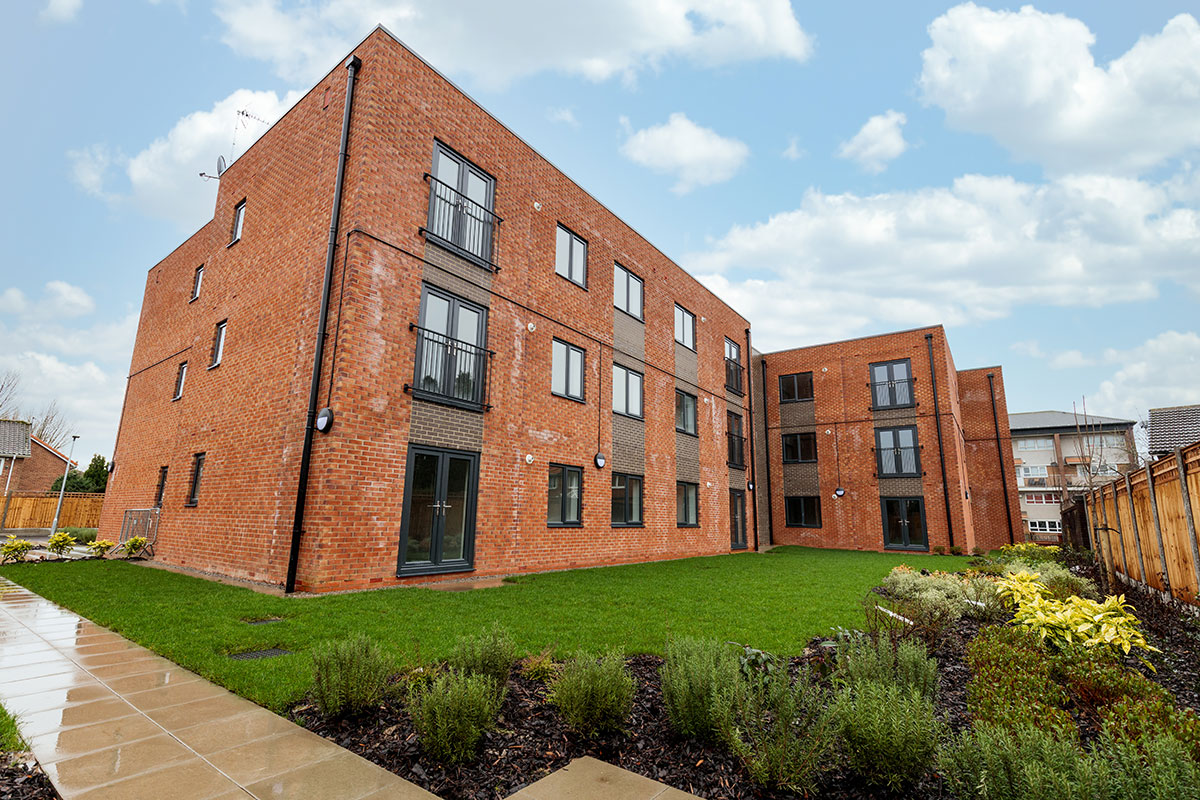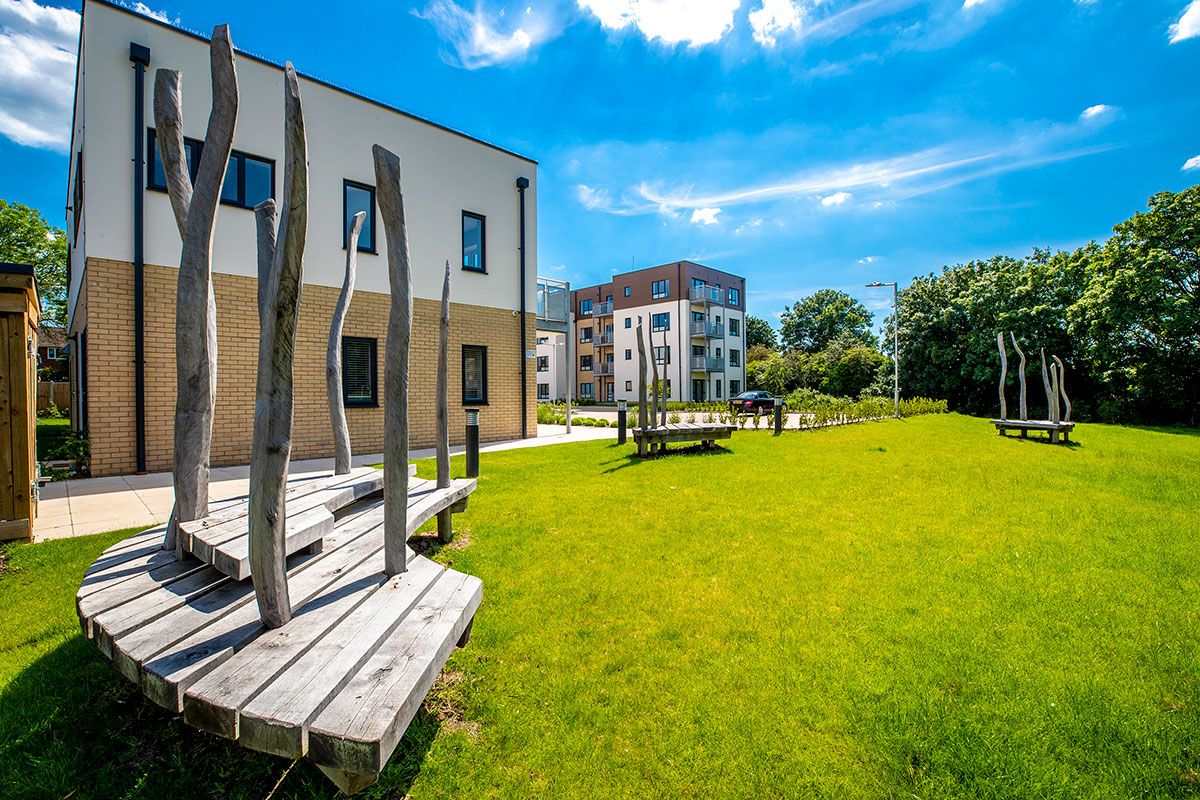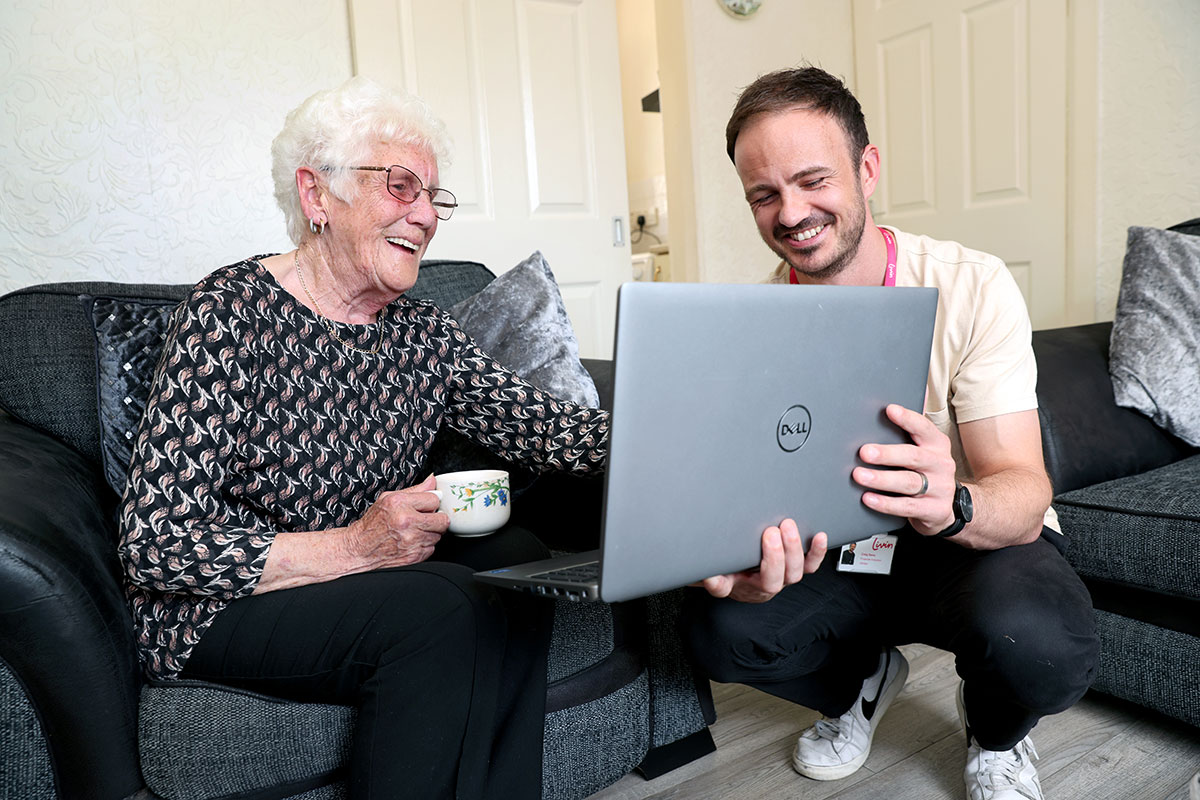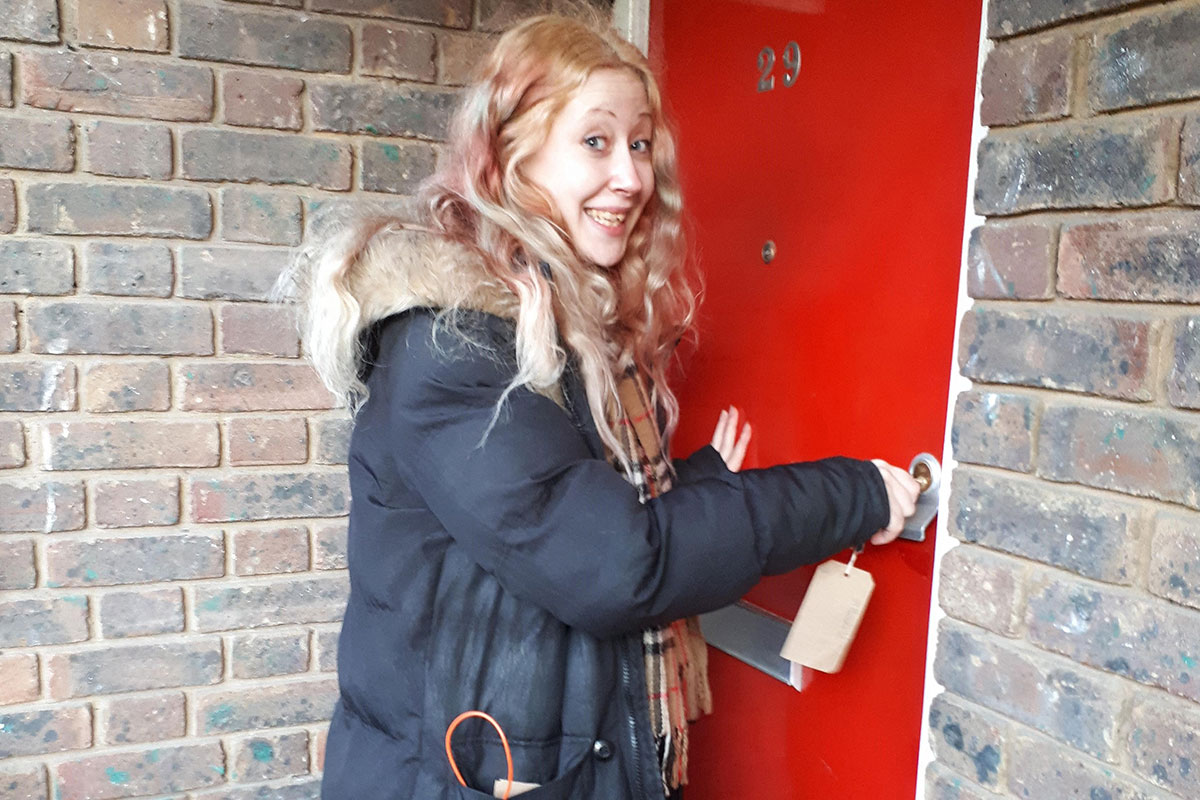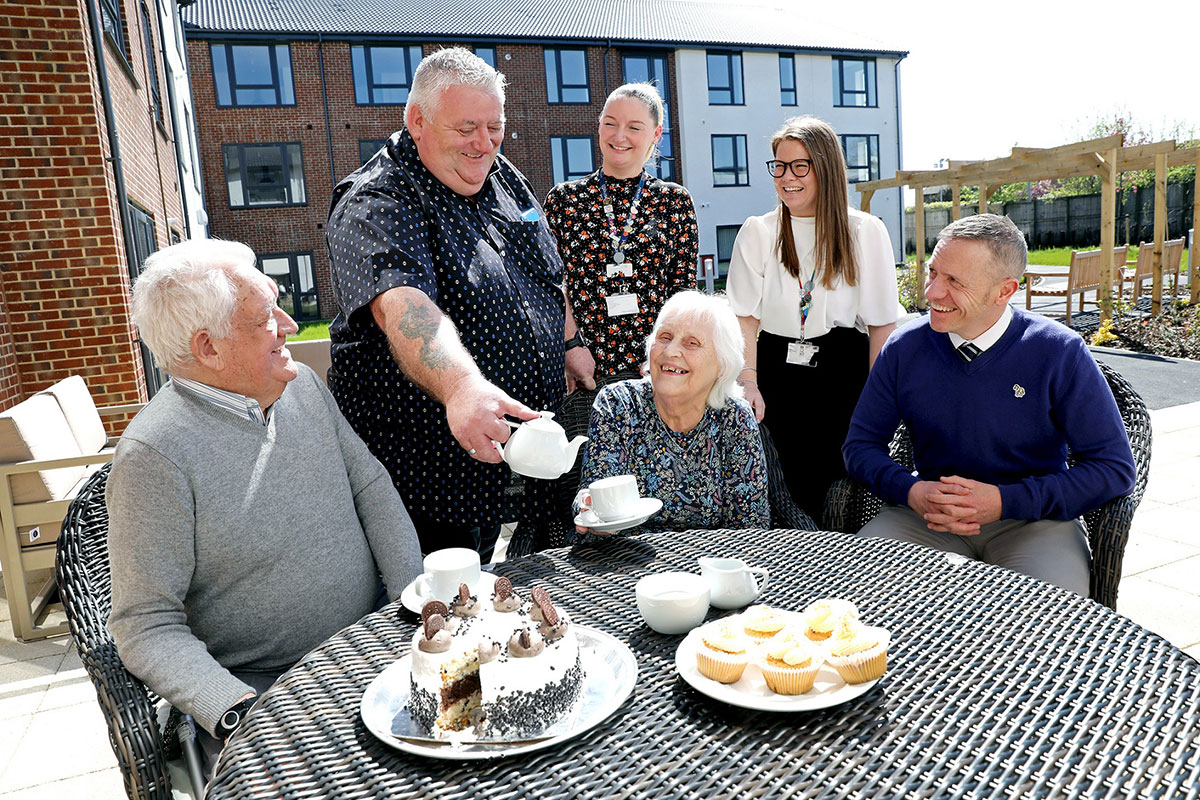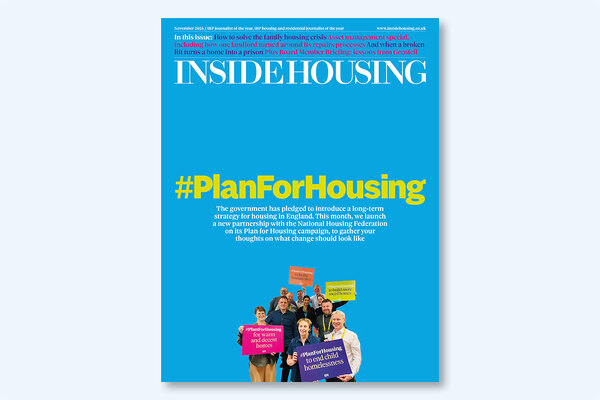You are viewing 1 of your 1 free articles
UK Housing Awards 2022 – the winners
Inside Housing reveals the winners of this year’s UK Housing Awards
For the 2022 UK Housing Awards, Inside Housing and the Chartered Institute of Housing worked with around 50 of the most prominent housing experts to judge entries across 19 categories.
Expert panels were drawn from a wide range of organisations and institutions, including housing associations, local authorities and government bodies, and from across the UK. We share the learning from the winning entries over the following pages.
Hello and welcome to this special section of Inside Housing, which contains details about all the winning entries from this year’s UK Housing Awards.
Although there was no in-person event this year, the awards remain focused on celebrating the achievements of staff and tenants from across the UK housing sector, helping to spread their ideas and learning to as wide an audience as possible.
The coming pages are a showcase for the very best of the sector. From supported housing to climate change, homelessness projects to innovation, the winning entries are carrying out vital and important work. As a judge myself, I have heard about that work directly, speaking to tenants who have been involved in shaping decisions and hearing about work to house asylum seekers, ex-offenders and homeless young people. These pages are about celebrating that work, but also about sharing some of that knowledge and helping it travel, looking at projects and approaches that are potentially replicable and which could strengthen delivery elsewhere.
If we get it right, some of the success stories in this section will be replicated in housing providers across the UK in years to come. So do take the time to browse through the list of winners, and look to pick up on ideas that are relevant to the work your teams do.
All that remains is to issue a massive thank you to our judges and our sponsors for making it all possible. Well done to all of our winners, and thank you for sharing your stories more widely.
Martin Hilditch, editor, Inside Housing
Contractor of the year
Repairs and maintenance contract, Equans and Birmingham City Council
- Repairs-related complaints to the council fell from 6,000 to 1,000 in the contract’s first month
- Managers rolled out the new contract in just 12 weeks, instead of the usual six months
- In June, the contractor’s service achieved 96% repairs “right first time”
For six years, Equans has been responsible for maintaining 9,000 homes across north Birmingham and, in January 2022, the city council appointed Equans to deliver planned and responsive repairs, maintenance and refurbishment in the east and west quadrants, too. This was the first time a single contractor had been awarded a repairs and maintenance contract for three out of four of the city’s quadrants.
The new two-year contract went live on 1 April. Contract managers worked to an extremely tight timeframe of just 12 weeks (the process would usually take six months) in a challenging economic and operational climate to prepare for the launch.
In record time they sourced over 1,000 pieces of IT kit, stocked, tracked and liveried 250 vans, bought 1,020 power tools and implemented a new IT system. Daily productivity rates increased by 0.8 jobs per operative per day in the first three months. Coupled with a bonus scheme, this is delivering great results: the contract’s ‘right first time’ key performance indicator achieved 96% in June. Also, complaints to the council about repairs fell from 6,000 to just 1,000 in its first month.
The judges said:
“The relationship was constructive and productive, and communication was a huge strength – in fact, the client was part of the interview team on judging day!”
This category was judged by:
Julie Doyle, chief executive, Longhurst Group
Cath Murray-Howard, chief operating officer, Torus
Homebuilder of the year – North
Onward
- Onward has made considerable progress against its target to deliver 5,000 new homes by 2030
- Onward’s commitment to local supply chains, workforces and economies set it apart
- Last year, it helped more than 250 people take their first step onto the housing ladder
Against a challenging economic backdrop, Onward has made progress against its target to deliver 5,000 new homes by 2030. In its first year of partnership with Homes England, Onward started 800 of the 3,208 homes to be realised from a total £600m investment. A range of tenures will be provided, including 38% affordable rent, 12% Rent to Buy, 40% shared ownership and 10% supported.
Onward seeks out regional contractors and suppliers that share its vision and values, while enhancing Onward’s knowledge. One such partnership with Warrington-based Lane End Group is delivering this developer’s largest scheme to date, at Signaller’s Croft in Cheshire East. Foundations on the 449-home scheme were laid this year, and it includes Onward’s first homes for market sale, after 10 years supporting first-time buyers into affordable homeownership.
This year, Onward has given more than 250 customers their first step onto the housing ladder, through shared ownership and rent-to-buy. By providing accessible routes to homeownership in areas of traditional unaffordability, Onward Living has achieved a 100% satisfaction rate, and an average Trustpilot rating of 4.8 out of five.
The judges said:
“Onward has an outstanding record of bespoke delivery. Their commitment to a long-term presence in local areas and their agility to adopt more innovative practices set them apart”
This category was judged by:
Caroline Baker, managing partner, North West region, Cushman & Wakefield
Ewan Cochrane, head of development finance, Homes England
Chad Ndebele, graduate analyst, Homes England
Harry Swales, chief investment officer, Homes England
Highly commended:
Legal & General Modular Homes
Homebuilder of the year – South
Essex Housing, Essex County Council
- Delivering an ambitious development programme in the face of economic headwinds
- Essex Housing has a 1,002-home development programme under way, worth around £293m
- Its specialist units alone will save Essex County Council £1.8m every year
Local authorities face a huge housing shortage and a lack of funding, at the same time as striving to provide high-quality homes for residents and specialist housing for those with additional needs. Essex Housing has delivered on its ambitious housebuilding programme against this challenging backdrop, helping its parent council to achieve its corporate objectives.
The Essex Housing team was created to identify public sector land and assets, using surplus brownfield land while protecting the green belt. It also provides end-to-end development management services to public sector partners for private, specialist and affordable housing.
The team’s achievements include an ongoing development programme of 1,002 units – including 50% specialist and affordable units – with a forecast gross development value of £293m; predicted annual revenue savings from the specialist units of around £1.8m, which can then be reinvested into other vital services; £19.5m in completed sales, with a further £3.5m on the way; and planning permission secured for a further 371 units within the current programme.
The judges said:
“An ambitious and forward-looking organisation that optimises the use of public assets to build high-quality, much-needed affordable homes with a focus on independent living”
This category was judged by:
Waqar Ahmed, group finance director, L&Q
Debbie Trust-Dickinson, chief operating and transformation officer, Halton Housing
Highly commended:
ClwydAlyn
Professional services partner of the year
Shakespeare Martineau
- This law firm is a fast-growing, full-spectrum services partner to a growing number of housing clients
- Over the past year, it helped clients with everything from modular housing to cutting rent arrears
- It received an impressive number of glowing testimonials from happy clients across the sector
Law firm Shakespeare Martineau is a fast-growing, full-spectrum services partner to an expanding roster of clients in the housing sector.
It is a one-stop shop for registered providers and developers, providing legal advice on sales, housing management, litigation, commercial property, town planning, legal planning, master planning, corporate governance, employment, asset finance, construction and energy.
Over the past year, the firm has helped clients deliver modular housing, to acquire stock and even reduce rent arrears. Shakespeare Martineau’s sales team has reduced the average time between instruction and exchange from over 60 days to 47 days, enabling its clients to realise capital for reinvestment quicker. For many of its clients, this is down to 30 days.
As Sharon Stevenson, asset sales manager at 23,500-home Longhurst Group, puts it: “In the short period of time we’ve worked with Shakespeare Martineau, we’ve received exceptional service. The support and help offered has been second to none … A great working relationship has been formed.”
The judges said:
“This firm breaks the mould, providing thought leadership and using it in relation to their legal and professional services. It could cause a revolution in legal practice”
This category was judged by:
Martin Hilditch, editor, Inside Housing
Professor Peter Roberts, chair, Northern Ireland Housing Executive
Digital landlord of the year
Livin
- Livin’s CARE digital programme stands for convenient, accessible, reliable and easy service
- It includes a new app that enables tenants to pay their rent or book repairs at any time, on any device
- Its new website has earned glowing reviews and a 93% satisfaction rating
County Durham-based housing association Livin says digital transformation is at the heart of everything it does, because this is a practical necessity in 2022. Livin’s digital transformation programme is called CARE, which stands for convenient, accessible, reliable and easy service. Its aim is to deliver easy-to-access services to tenants 24 hours a day, anywhere and on any device.
Livin’s growing team of digital specialists helps its frontline teams to deliver. It embeds digital thinking across all teams, facilitates solutions and maximises adoption, making digital the default channel.
Notable achievements include a new My Livin app, which provides 24-hour access to repairs, rents and housing services; a new customer-relationship management system; a redesigned website that facilitates more-rapid communication and easier access to online services (satisfaction with the website is 93% and a recent auditor deemed it “the best example I have seen”); as well as improved IT system resilience that has delivered 99.5% uptime.
This reliability builds trust, creates great relationships and produces high levels of satisfaction.
The judges said:
“The Livin team demonstrated a complete understanding of their geography, customers and their challenges with an ambitious digital strategy”
This category was judged by:
Ursula Bennion, chief executive, Trent & Dove Housing
Léann Hearne, chief executive, Livv Housing Group
Highly commended:
Get Online Newcastle, Your Homes Newcastle
Innovator of the year – independent
Chameleon Digitization
- Chameleon Digitization’s product, Chameleon Detect, uses AI to make buildings safer
- It can detect when someone brings a dangerous object inside and notifies the correct person
- The system has a 90% detection rate, boosting the safety of buildings and their occupants
Chameleon Digitization has developed Chameleon Detect, a surveillance product which can detect dangerous objects entering buildings. The bespoke machine learning model with real-time image capture was developed to prevent hazardous objects from entering high-rise tower blocks.
This technology has been used to great effect in Springburn, Glasgow, where the housing provider, NG Homes, required a system calibrated to detect tenants bringing canisters of gas, fuel or oxygen into tower blocks. Large-panel construction, concrete high-rise buildings such as these are at risk of collapse, if an explosion were to occur; the use of Chameleon Detect is a powerful tool in helping to reduce the risk of this happening.
During the testing phase of installation, actors carried a range of sizes and types of prohibited cannisters into the buildings.
A robust schedule was followed for each entrance, varying the camera angles, as well as size and type of cannister. Dates and times of known entries to buildings were compared with detections by the artificial intelligence software, which was found to have detected 90% of prohibited items.
The judges said:
“We were impressed by the use of AI to detect danger and keep residents safe in their homes. We also liked that 98% of their clients are social housing organisations”
This category was judged by:
Charlie Norman, chief executive, Mosscare St Vincent’s
Lara Oyedele, president, Chartered Institute of Housing
Highly commended:
Switchee
Sponsored by:
![]()
Innovator of the year – housing association or local authority
Lancaster Home Improvement Agency, Lancaster City Council housing services
- This agency helps vulnerable older and disabled residents live safely in their own homes
- The home improvement service provides residents with a one-stop shop for all forms of adaptation
- Users have access to repair services, energy improvements and assistance to increase incomes
The Lancaster Home Improvement Agency is dedicated to helping vulnerable older and disabled residents live safely and with dignity in their own homes. It provides practical solutions to enable residents to retain their independence and prevent them from having to move into care. It delivers tenure-blind services across a district of more than 60,000 households with high levels of deprivation and higher than average concentrations of vulnerable residents.
The agency has developed an integrated adaptation service which is seen as a model of good practice in the sector. It provides residents with a one-stop shop for all forms of adaptation, including the delivery of the Disabled Facilities Grant programme and statutory minor adaptations. It takes a proactive approach to identifying the needs of residents, ensuring all users have access to the full range of services, including handyperson and repair services, energy improvements and assistance to increase incomes.
The agency provides a truly person-centred service and is an excellent example of collaborative working between health and housing.
The judges said:
“This project was outstanding. It demonstrates clear social, environmental and financial sustainability. We were impressed by the commitment to local businesses”
This category was judged by:
Jacqui Bateson, managing director, HACT
Emma Gilbank, service manager for sustainability and climate change, Connect Housing
Highly commended:
GreenSquareAccord and Jewson
Sponsored by:
![]()
Campaign of the year
Bolton Manbassadors, Bolton at Home and Maxmedia
- This is a grassroots campaign aimed at reducing the stigma around men’s mental health
- Bolton Manbassadors has exceeded its targets for the first year and expects to grow
- This campaign has demonstrably served as a catalyst for real and impactful change in its local area
In Bolton, 75% of people who end their own lives are men. Men are less likely to access psychological therapies than women, with only 36% of referrals to NHS talking therapies being for men. Housing association Bolton at Home set out to address this with a grassroots campaign.
Bolton Manbassadors was designed to reduce stigma and normalise conversations around men’s mental health. It does this through a proactive network of compassionate local businesses that can start conversations with potentially distressed individuals and signpost them to the appropriate mental health services.
The campaign has exceeded its first-year goals: it signed up 55 businesses, against a target of 50, and signposted 65 individuals to appropriate mental health services, against a target of 50.
Bolton Manbassadors has exceeded expectations. Businesses continue to sign up, and the team expects this to accelerate.
Businesses across Bolton are already beginning to hold their own spin-off events and activities, which suggests Bolton Manbassadors has had a positive, lasting impact.
The judges said:
“This is an outstanding campaign that is making a real difference to people’s lives. The fact that 55 local businesses signed up within a one-year period speaks volumes”
This category was judged by:
Gary Moreton, chair, WHG
Anna Munroe, people and culture graduate, Yorkshire Housing
Yogeta Partridge, director, RESAM Consulting
Climate change project of the year
Retrofit London, London Borough of Enfield and London Borough of Waltham Forest, supported by London Councils
- This programme aims to bring all 3.8 million properties in London up to an average EPC Band B by 2030
- This evidence-led approach to net zero has managed to bring London’s councils together
- This project can be a blueprint for similar ambitious projects across the UK
Homes are responsible for around 36% of all carbon emissions in London, which means home retrofit is vital. Retrofit London is a programme that enables councils in the capital to pull in the same direction on factors vital to large-scale retrofit including planning, developing skills, building procurement models and engaging with residents.
The London boroughs of Enfield and Waltham Forest established Retrofit London to achieve the ambition – as set out in London Councils’ Joint Statement on Climate Change – to reach an average Energy Performance Certificate (EPC) rating of Band B across all 3.8 million properties in the capital by 2030, on a path towards net zero emissions. The plan sets out the scale needed, as well as the cost: around £49bn to achieve an average EPC Band B and a 56% cut in emissions. It also highlights the potential for new jobs.
It is an evidence-led approach that has brought councils together around a stretching objective and programme of activity. Retrofit London is poised to lead a revolution in retrofitting and provide the systems leadership to deliver this. It will also provide a blueprint for action that can be replicated across the rest of the country.
The judges said:
“This initiative is outstanding in terms of its vision, scale
and ambition. It’s fantastic to see the collaborative approach, and wonderful that this project is potentially replicable”
This category was judged by:
Monica Barnes MBE, resident ambassador, Optivo
Tracy Harrison, chief executive, Northern Housing Consortium
Highly commended:
SolShare
Sponsored by:

Resident employment and training award – 0-15,000 homes
Caritas Anchor House
- This charity is making a difference in the borough with London’s highest level of homelessness
- Last year, Caritas Anchor House provided a home and support to 374 homeless people
- Of those it helped, 123 have moved into their own home and 68 are now in sustainable employment
Newham, the London borough in which Caritas Anchor House operates, has the highest level of homelessness in the UK: one in 22 people are without a safe place to call home. Last year, this charity provided a home and support to 374 people experiencing homelessness; 68 of them secured and sustained employment, and 123 moved on from Caritas Anchor House and into their own home. Of those who had moved on, 88% were still sustaining their move after nine months.
Employment is another big challenge for Caritas Anchor House residents. London has the highest unemployment rate in the UK (7%), and in Newham this is even higher (14%). During the pandemic, employed residents were hit hard, as they work mainly in construction, warehouses, security, retail and hospitality. Many lost their jobs or were furloughed. Concerns rose over the financial impact this would have on them.
Caritas Anchor House’s team provided budgeting advice and assistance to those who didn’t meet the furlough criteria,
helping them to apply for Universal Credit. The team continued to help residents reach their employment goals as the job market recovered after lockdown.
The judges said:
Their work in engaging with people furthest from the job market was inspiring. Their devotion to making sure [they] reached out to Newham’s diverse communities was exemplary”
This category was judged by:
Alison Dean, executive director of people, culture and business improvement, Great Places Housing Group
Mushtaq Khan, chief executive, Housing Diversity Network
Highly commended:
Realise Your Potential, Cadwyn Housing Association
Resident employment and training award – 15,000+ homes
Employment and training team, Work4Health, WHG
- Work4Health helps disadvantaged Walsall residents into employment with the local NHS trust
- It offers training, work experience, mock interview practice and a guaranteed job interview
- A pilot resulted in 14 unemployed candidates being offered support services roles
A key driver in improving people’s health and economic status is securing good-quality jobs. Using its strategic influence on the Walsall Together board, housing association WHG partnered with Walsall Healthcare NHS Trust to form a job creation programme that helps disadvantaged residents to secure quality employment with the trust, reducing poverty, health inequalities and improving their health and well-being.
WHG’s employment and training team worked with the trust, Walsall College and the Department for Work and Pensions to create Work4Health. Designed specifically around jobs available within the trust, Work4Health combined skills training, work experience, application form support, mock interview practice and a guaranteed job interview for roles at Walsall Manor Hospital.
This pilot resulted in 14 unemployed candidates being offered support services roles at the trust. It was an excellent example of a way to tackle the wider determinants of health, widen the NHS candidate pool and improve workforce retention. It resulted in the trust committing additional funding to build on this programme and extend it to other roles.
The judges said:
“This was a unique and innovative programme. Its outcomes are impressive, especially in terms of the diversity of residents recruited to NHS jobs from the most deprived communities”
This category was judged by:
Sasha Deepwell, chief executive, Irwell Valley Homes
Rommel Faytaren, director of commercial services, Optivo
Homelessness project of the year – North
The National House Project
- Young care leavers are more at risk of homelessness than their peers outside the care system
- This project supports care leavers to live independently in a home environment they have helped create
- Stable relationships are important; staff build trusting relationships with each young person
Relative to their peers who have not grown up in the care system, care leavers are more likely to experience homelessness. The reasons for this are complex. Poor outcomes are influenced by the traumatic experiences that brought them into care, which are often compounded by the care system itself, and this is characterised by a lack of continuity in relationships and emotional support.
The National House Project aims to support young people to live independently and inter-dependently in a home environment they have helped to create. Care leavers are supported in a peer community to develop practical and emotional skills. The project uses an ‘every intervention matters’ approach. Staff model relationally sensitive, trauma-informed and emotionally attuned behaviour. The stability of relationships is paramount: staff build honest, trusting relationships, enabling them to support each young person in the most appropriate way.
There are 10 young people in any one cohort. They are involved in choosing a house which becomes their home for as long as they want. There are currently 412 young people in The National House Project community and 248 who are living in their own homes.
The judges said:
“This truly inspirational project has the potential to tackle intergenerational homelessness and repeat homelessness for care leavers by setting an important foundation”
This category was judged by:
Kelly Henderson, managing director, Addressing Domestic Abuse
Grainia Long, chief executive, Northern Ireland Housing Executive
Deborah Reid, head of homeless projects, Northern Ireland Housing Executive
Highly commended:
Multi-Agency Rough Sleeper Support Hub (MARSH), Derby Homes
Sponsored by:
![]()
Homelessness project of the year – South
Dynamic Pathway to Independence, One YMCA
- This project supports people on their journey from rough sleeping to independent accommodation
- One YMCA provides high-quality accommodation with the right level of trauma-informed support
- It has significantly reduced rough sleeping in Watford and helped 1,000 people get their own home
When the government launched Everyone In in March 2020, there were 83 known rough sleepers in Watford, all with complex needs and challenging behaviours. These individuals had been failing to maintain any tenancy beyond two weeks for many years; the one consistent reason they cited was “there’s nowhere to live and nowhere that’s affordable to live”. This kept them trapped in the revolving door of rough sleeping.
One YMCA developed its Dynamic Pathway to Independence (DPI) in response. It is an interconnected and seamless universal pathway that supports individuals on their journey from sleeping rough to independent living. It has helped One YMCA’s residents to acquire the life skills and resilience they need to get off – and stay off – the streets and become valued members of their community.
One YMCA has provided more than 185,000 nights of safe accommodation to those most in need, combining high-quality and aspirational accommodation with the right level of trauma-informed support. Over the past two years, this team has significantly reduced rough sleeping in Watford, mobilised its DPI model and helped more than 1,000 people towards having their own front door.
The judges said:
“Having worked with more than 1,000 people in 2021-22, we believe this is a very exciting model that could make a major difference across the country”
This category was judged by:
Peter Apps, deputy editor, Inside Housing
Molly Bishop, strategic lead for homelessness and rough sleeping, Greater Manchester Combined Authority
Fabian McLaughlan, professional services officer, Stonewater
Highly commended:
Royal Greenwich Rough Sleeping Partnership, Royal Borough of Greenwich
Sponsored by:
![]()
The neighbourhood transformation award
Transforming Heath Town, Wolverhampton Homes and United Living, on behalf of the City of Wolverhampton Council
- This is a £120m programme to transform one of Wolverhampton’s most deprived estates
- It focuses on improving housing and safety, and has seeded a revival of the wider area
- Project included CCTV, improved lighting, volunteer litter-pickers and employment opportunities
Wolverhampton is one of the most deprived areas in the country, and Heath Town is in the top five most deprived areas in the city. Health inequalities and higher than average rates of crime were affecting residents’ lives. The estate was originally designed with community facilities, but most of these had closed by the early 2000s and the area was in need of regeneration.
The City of Wolverhampton Council launched a £120m transformation of the estate and is building 40 new homes. It is being delivered by Wolverhampton Homes with a strategic construction partner, United Living, and is supported by Bhupinder Gakhal, the council’s cabinet member for city assets and housing.
A programme of safety and housing improvements, including new green spaces, CCTV, improved lighting, volunteer litter-pickers and employment and training opportunities, has kick-started the revival of the whole area. The estate is a more pleasant place, the streets are no longer clogged with parked cars and new families have moved in. There’s an active tenant and residents’ association and a range of activities for adults and young people, creating a thriving and vibrant community in Heath Town.
The judges said:
“This project has demonstrated deep community engagement and a commitment to long-lasting regeneration that helps support some of the area’s most vulnerable tenants”
This category was judged by:
Angelique Banton, head of housing services (south London and South East), Metropolitan Thames Valley Housing
Callum Chomczuk, national director, Chartered Institute of Housing Scotland
Darren Rodwell, deputy chair, London Councils
Highly commended:
Manor Street, Eastlight Community Homes
Best older people’s landlord
Housing 21
- Housing 21 has resident satisfaction ratings of 91% for housing and 97% for care
- Housing 21 also ensures dementia is considered as a key priority in the to help with financial challenges
- On-site managers were trained as ‘tenancy gurus’ for residents and to help with financial challenges
A customer satisfaction rating of 91% for its housing provision and 97% for the care it provides show that Housing 21’s holistic approach goes beyond just buildings, bricks and mortar, and focuses on the support and well-being of its residents.
Housing providers can play a significant advisory role when it comes to assisting residents with financial guidance. Over the past two years, Housing 21’s Helping Hands initiative has provided its on-site managers with the tools and training to act as ‘tenancy gurus’. They help residents sustain their tenancies by, for example, talking to them about managing money and dealing with financial challenges in a positive way.
Housing 21 has also led the way on dementia. It ensures this issue is considered as a key priority in all parts of the organisation and all services for residents and staff, while raising awareness of the importance of appropriate housing for affected people.
Housing 21 is committed to using its expertise to contribute to the challenge of managing dementia in society, by being part of dedicated networks and working with other providers to effect positive change.
The judges said:
“Digital solutions for residents, tenancy ‘gurus’ and proactive housing management to prevent homelessness – Housing 21 has raised the benchmark for older people’s housing”
This category was judged by:
Gabriel Codjoe, director of housing, Network Homes
Jeremy Porteus, chief executive, Housing Learning and Improvement Network
Best supported housing landlord – 0-15,000 homes
Calico Homes, The Calico Group
- Calico Homes’ dedicated supported housing team provides services to a range of vulnerable groups
- These include an award-winning, 30-bed homeless project for people with complex needs
- Calico Homes also works alongside Out in The Bay, an LGBTQ+ charity in Morecambe
Calico Homes owns just over 5,000 properties across Lancashire, providing quality accommodation for families, individuals and older people, plus supported housing and services for a range of vulnerable customer groups.
Its dedicated supported housing team provides a range of services and projects: refuge and safe accommodation for survivors of domestic abuse; the Gateway project, an award-winning, 30-bed homeless project for individuals with complex needs including mental health issues and/or substance misuse; homes and support for single teenage mothers, many of whom come directly from the care system; the Foxhills project, a development of 10 bungalows for individuals with enduring complex needs, including learning disabilities, physical disabilities and mental health needs;
and Healthier Heroes, which provides supported housing for Armed Forces veterans experiencing homelessness.
Calico Homes also works alongside Out in The Bay, an LGBTQ+ charity in Morecambe that is acquiring and renovating two large houses to create supported housing for vulnerable young people.
The judges said:
“What’s courageous is their willingness to dive into unknown territory – to work with such a diverse community and individuals. Their can-do/will-do values were really positive”
This category was judged by:
Yvonne Castle, chief executive, Johnnie Johnson Housing
Martin Hilditch, editor, Inside Housing
Bruce Moore, chief executive, Housing 21
Jack Simpson, assistant editor (news and investigations), Inside Housing
Highly commended:
The Eliora Project, Langley House Trust
Best supported housing landlord – 15,000+ homes
Delayed transfer of care – mental health, Bolton at Home
- This project supports acute mental health patients to move from the ward into their own homes
- It introduces patients to the idea of independent living while they are on the ward
- When they are ready to move, a property is identified in a suitable area, near support networks
In December 2020, Greater Manchester Mental Health NHS Foundation Trust approached Bolton at Home to develop a model for supporting acute mental health patients at risk of institutionalisation and/or homelessness to move from the ward into their own homes.
Initially a six-month pilot that was extended due to its success, delayed transfer of care – mental health (DTOC-MH) is a partnership approach removing barriers to rehousing. A range of support and contingency plans prevent the person from becoming homeless because of mental health relapse.
Many individuals experiencing acute mental health issues struggle to source stable housing and navigate the housing process. DTOC-MH introduces the concept of living independently while they are on the ward, embedding early referral and assessment, incorporating multidisciplinary risk management and contingency planning, and responding to fluctuating mental health. The person can envisage living in the community and managing their home before discharge.
When they are ready to move, a property is identified in a suitable area, near support networks. It is decorated, furnished and equipped with essential items.
The judges said:
“An approach that gives people who would otherwise be in hospital, a home, while saving money for the NHS by helping to free up beds. We should be doing more of this”
This category was judged by:
Yvonne Castle, chief executive, Johnnie Johnson Housing
Martin Hilditch, editor, Inside Housing
Bruce Moore, chief executive, Housing 21
Dr Lígia Teixeira, founding chief executive, Centre for Homelessness Impact
Highly commended:
Thirteen
Council of the year
Lancaster City Council
- Lancaster City Council is delivering its most ambitious development programmes in a generation
- Achievements include supported housing and regeneration schemes for disadvantaged communities
- The Mainway Estate regeneration is the most ambitious housing project since the post-war era
Working with partners, Lancaster City Council is delivering its most ambitious development programmes in more than a generation. Residents are starting to benefit from exemplar new council housing, community-led Passivhaus schemes, supported housing and regeneration schemes for disadvantaged communities.
During 2020-21, 430 new dwellings were completed. Completions are expected to increase in the coming years. The council has also secured Homes England Investment Partner status and, as such, has obtained grant funding towards the development of a new 12-bedroom flat complex in the city centre for rough sleeper move-on accommodation.
The council’s housing service is embarking on its most ambitious housing project since the post-war building era, with the regeneration of the 260-home Mainway Estate. This will be complemented with the development of a further 250 homes on a neighbouring site. These regeneration and new build schemes aim to achieve the highest energy performance. In addition, the council has funded a £1.2m regeneration of a Gypsy and Traveller site.
The judges said:
“The council is working to create a very ambitious programme at a commendable scale, with drive and tenacity, to deliver high-quality homes that meet the needs of the community”
This category was judged by:
Hakeem Osinaike, director of housing, London Borough of Brent
Emma Richman, executive director of operations, Peaks & Plains Housing Trust
Nigel Wilson, chief executive, Gentoo Group
Highly commended:
City of York Council
Sponsored by:

Landlord of the year
Thirteen
- Thirteen is an exemplar in involving tenants to drive improvements throughout its business
- It has delivered a major programme of housing improvements in the teeth of the pandemic
- In 2021-22, Thirteen invested £31m in internal and external improvements to its homes
Thirteen says the past two years have delivered a lesson that any challenge, no matter how big, can be overcome with hard work, dedication and a focus on what really matters. Learning is embedded throughout the organisation. Lessons-learned reports are prepared for every piece of work and are regularly sent to the board. Feedback on learning and improvements is also taken from customers and the results are fed back again.
Customer feedback has been used to shape the way Thirteen delivers concierge services throughout its portfolio. Despite the pandemic, Thirteen still delivered improvements to existing homes, including new windows and doors for more than 560 households, 623 new boilers, 245 new roofs and 1,928 adaptations to help customers remain in their homes. In 2021-22, it invested £31m in internal and external improvements to its homes, including replacing more than 1,000 kitchens and 200 bathrooms.
Thirteen has involved and listened to tenants to drive improvements in its business. It has created income streams to help customers
in all walks of life, truly putting customers at the heart of everything it does.
The judges said:
“Thirteen is a business with tenants at the centre of much of its decision-making. A number of landlords could learn some good lessons from watching how Thirteen does things”
This category was judged by:
Chloe Fletcher, policy director, National Federation of ALMOs
Alexandra Gibson, policy and practice officer, Chartered Institute of Housing
Martin Hilditch, editor, Inside Housing
James Prestwich, director of policy and external affairs, Chartered Institute of Housing
Jack Simpson, assistant editor (news and investigations), Inside Housing
Highly commended:
Plymouth Community Homes
Sponsored by:

Judges
Waqar Ahmed
Group finance director, L&Q
Peter Apps
Deputy editor, Inside Housing
Caroline Baker
Managing partner, North West region, Cushman & Wakefield
Angelique Banton
Head of housing services (south London and South East), Metropolitan Thames Valley Housing
Monica Barnes MBE
Resident ambassador, Optivo
Jacqui Bateson
Managing director, HACT
Ursula Bennion
Chief executive, Trent & Dove Housing
Molly Bishop
Strategic lead for homelessness and rough sleeping, Greater Manchester Combined Authority
Yvonne Castle
Chief executive, Johnnie Johnson Housing
Callum Chomczuk
National director, Chartered Institute of Housing Scotland
Ewan Cochrane
Head of development finance, Homes England
Gabriel Codjoe
Director of housing, Network Homes
Alison Dean
Executive director of people, culture and business improvement, Great Places Housing Group
Sasha Deepwell
Chief executive, Irwell Valley Homes
Julie Doyle
Chief executive, Longhurst Group
Rommel Faytaren
Director of commercial services, Optivo
Chloe Fletcher
Policy director, National Federation of ALMOs
Alexandra Gibson
Policy and practice officer, Chartered Institute of Housing
Emma Gilbank
Manager for sustainability and climate change, Connect Housing
Tracy Harrison
Chief executive, Northern Housing Consortium
Léann Hearne
Chief executive, Livv Housing Group
Kelly Henderson
Managing director, Addressing Domestic Abuse
Martin Hilditch
Editor, Inside Housing
Mushtaq Khan
Chief executive, Housing Diversity Network
Grainia Long
Chief executive, Northern Ireland Housing Executive
Fabian McLaughlan
Professional services officer, Stonewater
Bruce Moore
Chief executive, Housing 21
Gary Moreton
Chair, WHG
Anna Munroe
People and culture graduate, Yorkshire Housing
Cath Murray-Howard
Chief operating officer, Torus
Chad Ndebele
Graduate analyst, Homes England
Charlie Norman
Chief executive, Mosscare St Vincent’s
Hakeem Osinaike
Director of housing, London Borough of Brent
Lara Oyedele
President, Chartered Institute of Housing
Yogeta Partridge
Director, RESAM Consulting
Jeremy Porteus
Chief executive, Housing Learning and Improvement Network
James Prestwich
Director of policy and external affairs, Chartered Institute of Housing
Deborah Reid
Head of homeless projects, Northern Ireland Housing Executive
Emma Richman
Executive director of operations, Peaks & Plains Housing Trust
Professor Peter Roberts
Chair, Northern Ireland Housing Executive
Councillor Darren Rodwell
Deputy chair, London Councils
Jack Simpson
Assistant editor (news and investigations), Inside Housing
Harry Swales
Chief investment officer, Homes England
Dr Lígia Teixeira
Founding chief executive, Centre for Homelessness Impact
Debbie Trust-Dickinson
Chief operating and transformation officer, Halton Housing
Nigel Wilson
Chief executive, Gentoo Group



